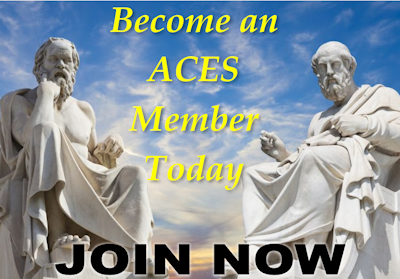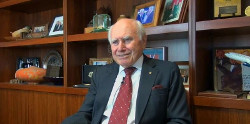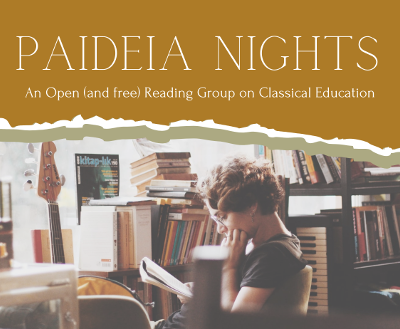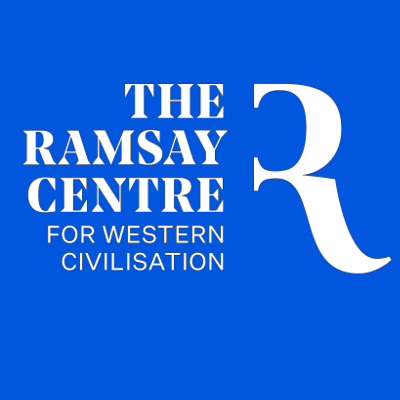Karl Schmude
The English essayist and humourist, Max Beerbohm, once remarked that, after reading a single paragraph of a work, he knew whether the author had received a classical education. He based this judgment, not on the display of learning or the citing of classical references, but simply on the quality of the writing. Having received a classical education at Oxford, he extolled the virtues of Latin in cultivating precision in the use of language and the expression of clear thought.
The Australian Catholic author and publisher, Frank Sheed, echoed and expanded Beerbohm’s comment. In his memoir, The Church and I (1974), Sheed argued that students learn most from studying Latin and poetry. They come to value the economy of words by studying Latin and the energy of words by reading poetry.
For my part, I feel fortunate in having studied Latin at school and later at university. This took place in Sydney in the early 1960s, just before the cultural revolution in the West banished the widespread teaching of Latin and a classical curriculum in Australia. At home my father, Alf Schmude, reinforced my school and university education. At Assumption College, Kilmore (Victoria), in the 1920s he had received an even stronger grounding in the classics, learning not only Latin but also Greek. He always impressed on me the debt which the English language owed to this rich cultural heritage.
While I was conscious at an early time of the classical roots of English words, only later did I realise the subtle impact that Latin can have on an aspiring writer. Its very compactness as a language posed a direct challenge to the wordiness of a talkative age. Our culture is now addicted to endless chatter, reinforced by the ubiquitous electronic devices of communication and a 24/7 news cycle. It is prone, as the poet W.H. Auden noted, to over-communication, especially when it has nothing worthwhile to say. By contrast, the study of Latin fosters - and even forces – a discipline in the use of words, which is not only valuable in itself when presenting a point, but distinctly useful for keeping to a required word-length.
When words are used carelessly – to quote Max Beerbohm again - the ramifications are not confined. “With the blunting of precision in language,” Beerbohm argued, “comes muddiness in political policy, in morality, and in conduct.” (S.N. Behrman, Conversation with Max, 1960)
In my case, the study of Latin had another, perhaps paradoxical effect. It nurtured an appreciation of silence – of the withholding of words – and made clear that, at times, an idea simply hinted at, or compressed in the form of an aphorism, can have a significant impact, as much as one stated baldly; just as a timely pause in a speech can lend a certain emphasis beyond the expressed point.
If the study of Latin is of value in forming a disciplined writing style, as well as supplying the roots of so many English words, it is an unrivalled gateway to the classical world. Its benefits are not only personal but cultural. It brings the student into touch with a whole heritage of thought and imagination and experience that shaped the character and continuity of our civilisation.
In a ground-breaking work in the 1960s, The Crisis of Western Education, the English historian Christopher Dawson made a radical suggestion. He proposed the study of Christian culture as a way out of what was seen, even then, as an educational void, which had opened up with the demise of classical education and would lead, irresistibly, to the further fragmentation of Western culture.
Dawson deeply valued a traditional classical education. He himself had benefitted from studying, at Oxford University in the early 20th century, the core subjects of history and philosophy, literature and theology, covering millennia of Western history. But he realised that the profound changes in our culture, replacing a respect for the past with an obedience to modernity, posed huge obstacles to recovering this heritage in its original form.
Dawson suggested that the study of Christian culture could serve as a unifying principle of the curriculum. It would pick up the essential elements of a classical liberal arts education, comprising the intellectual energy and imaginativeness of Athens, the social identity and political order of Rome, and the religious inspiration and guidance of Jerusalem, but give them a new centre in Christianity. He envisaged a focus on the life of the Christian people in history. Students would explore the traditions of thought and imagination in Christian culture, reflected in its popular history, as well as in its philosophy and theology and literature, and in other forms such as art and architecture and music. It would be studied in the context of Western culture, since this provided the fullest historical expression of spiritual faith enriching the findings of reason and refining the impulses of emotion.
What would be the practical value of studying Christian culture? Dawson’s hope was that it would give Christians a robust sense of their own identity, and enable them to respond creatively to the new cultural challenges. The approaches favoured in the catechetical programs of Catholic schools were either exclusively intellectual or, more recently, experiential. Their purpose was, on the one hand, to supply a philosophical justification or, on the other, a personally interpreted experience. Both are important but insufficient, as they are not connected with the broader cultural environment in which people have to live their faith. An education grounded in an understanding of Christian culture, Dawson believed, would equip Christians to maintain their faith in today’s Western culture, which was increasingly secularist – no longer simply neutral towards faith, but hostile to it.
When Dawson made this proposal - from the Chair of Catholic Studies he occupied at Harvard University from 1958 to 1962 - he could hardly have foreseen the extent to which Western culture and education would face a more dramatic crisis – a questioning of the natural, not just the supernatural. The West would no longer be able to defend even a natural endowment, such as reason, let alone a natural virtue like fortitude and good judgment.
As G.K. Chesterton pointed out, human beings have always sensed that, if they wish to preserve anything human, they must reach for the divine. Thus a further advantage now accrues for those devoted to a classical education – and that is, that they will be able to defend reason, not just faith, and to safeguard the finest natural as well as supernatural traditions of the culture we have taken for granted.
I first read The Crisis of Western Education in 1968. Dawson’s insights awakened my desire to create a university-level liberal arts college in Australia, which would integrate and enliven the insights, not only of reason but of faith. Several decades were to pass before Campion College materialised in 2006 (https://www.campion.edu.au/). It is an institution of Catholic inspiration but operates independently, relying on student fees and donor generosity to sustain itself. It now has over 300 graduates who have moved into every walk of life. Some are teaching a classical curriculum in schools, both in Australia and overseas.
The ideal of a classical education is not a retreat into nostalgia. It is a reaching back into our cultural past, not so much to restore a tradition as to reclaim and reanimate it – and make it available again to future generations of students.
The founding of the Australian Classical Education Society (ACES) is an inspiring sign of its growing importance.






